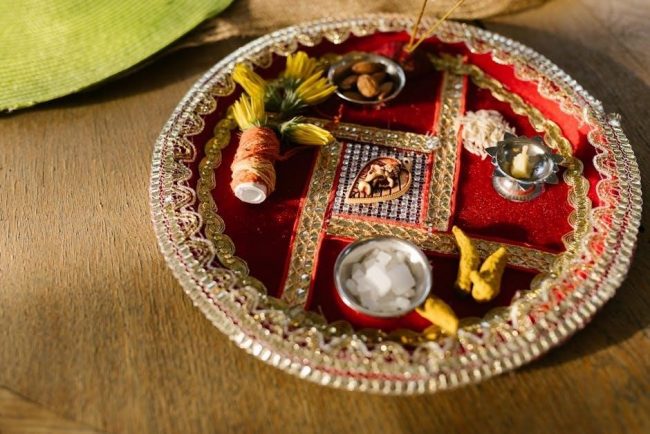Spiritual Gifts Inventory PDF: An Overview
The Spiritual Gifts Inventory PDF serves as a tool to discover one’s unique spiritual gifts. It offers guidance for active church service, highlighting individual strengths. The PDF format allows for easy printing and sharing.
Spiritual gifts are special abilities bestowed upon Christians by the Holy Spirit, empowering them to serve within the church and community. These gifts, rooted in New Testament teachings, enable believers to contribute meaningfully to God’s work. Understanding these gifts is crucial for personal growth and effective ministry.
The concept of spiritual gifts isn’t about personal gain but about utilizing divinely granted talents to uplift others. Identifying one’s gifts allows individuals to find their place within the body of Christ, fulfilling their unique purpose. This process often involves self-reflection and exploration, guided by resources like spiritual gifts inventories.
These inventories aren’t definitive tests but rather tools to spark discovery. They prompt individuals to consider their strengths, passions, and areas where they feel drawn to serve. Ultimately, the goal is to align one’s actions with their God-given abilities, contributing to a vibrant and thriving faith community.
Purpose of Spiritual Gifts Inventory
The primary purpose of a Spiritual Gifts Inventory is to help individuals identify their God-given talents. It serves as a guide towards understanding how one can best contribute to their church. The inventory assists in discovering where an individual’s passions and abilities intersect with the needs of the community. This, in turn, fosters a deeper sense of purpose and fulfillment.
By pinpointing specific gifts, the inventory empowers individuals to serve more effectively. It encourages them to focus on areas where they are naturally inclined to excel. This targeted approach optimizes their impact and strengthens the overall functioning of the church. It is also designed to show you where you can support others.
Furthermore, a spiritual gifts inventory can reveal hidden talents. It exposes potential areas of service that an individual may not have previously considered. This broadened awareness promotes exploration and discovery, leading to a more well-rounded and engaged faith experience. It is not a scientific instrument.
Benefits of Identifying Spiritual Gifts
Identifying spiritual gifts unlocks a multitude of benefits for both the individual and the community. It fosters a stronger sense of purpose, knowing that one’s talents are divinely given. This understanding can lead to greater fulfillment and satisfaction in service.
Furthermore, identifying gifts promotes more effective ministry. When individuals operate within their areas of strength, their contributions are naturally more impactful. This enhances the overall effectiveness of the church and its outreach efforts.
Understanding your gifts can also strengthen your faith. Recognizing God’s specific design for your life deepens your connection to Him. This knowledge can inspire confidence, empowering you to step out in faith and embrace opportunities for service. You will be more excited to do ministry.
Additionally, identifying spiritual gifts fosters unity within the church. When members understand and appreciate each other’s unique contributions, it creates a more harmonious and collaborative environment. This promotes teamwork and a shared commitment to serving God.

Understanding Spiritual Gifts Inventories
Spiritual Gifts Inventories are tools designed to help individuals discern their God-given talents. These inventories often present statements reflecting different gifts. Responses can reveal potential areas of strength and service.
What is a Spiritual Gifts Inventory?
A Spiritual Gifts Inventory is a tool designed to help Christians identify their spiritual gifts. These gifts, as described in the New Testament, are special abilities given by the Holy Spirit to empower believers for ministry and service within the church and the wider community. The inventory typically consists of a series of statements or questions related to various activities, interests, and skills.
Individuals respond to these items based on their personal experiences and inclinations. The responses are then analyzed to reveal patterns that indicate the presence of particular spiritual gifts. These inventories aren’t scientific instruments, but should be seen as a starting point for reflection and discovery.
The purpose is to provide guidance as people actively serve in the church, as that is the only way to truly determine one’s gifts.
Types of Spiritual Gifts Inventories
Spiritual Gifts Inventories come in various formats, each with its unique approach to identifying spiritual gifts. Some inventories are designed as self-assessment questionnaires, where individuals respond to statements based on their personal experiences and preferences. Others may involve a more interactive process, such as group discussions or interviews, to explore potential gifts through dialogue and reflection.
Some inventories focus on specific categories of gifts, while others offer a broader range of options. Additionally, inventories may vary in length and complexity, with some being relatively short and straightforward, while others are more comprehensive and detailed. Some online inventories are tailored for Christian youth and young adults. Selecting an inventory depends on individual preferences, the intended context, and the desired level of depth.
Catholic Spiritual Gift Inventories
Within the realm of Spiritual Gifts Inventories, specific resources cater to the Catholic tradition. These inventories are designed considering Catholic theology and understanding of spiritual gifts. Because many available inventories are not explicitly Catholic, careful selection is vital. Look for inventories aligned with Church teachings and emphasize service within the Catholic community.
Catholic-focused inventories often integrate elements of discernment and prayer, encouraging individuals to seek God’s guidance in identifying their gifts. They may also highlight gifts particularly relevant to Catholic ministries and apostolates. Remember that the goal is to discover how one can best contribute to the Church’s mission, living out their baptismal calling through service and love. Consulting with church leaders can provide valuable insights.

Using a Spiritual Gifts Inventory PDF
To use a Spiritual Gifts Inventory PDF effectively, download and print the document. Then, complete the survey thoughtfully, score it accurately, and identify your top spiritual gifts for further reflection.
Downloading and Printing the PDF
Acquiring a Spiritual Gifts Inventory in PDF format typically involves downloading it from a church website or a resource platform. Ensure the source is reliable to maintain accuracy. Once downloaded, locate the PDF file on your computer or device.
Printing the PDF is straightforward. Open the file using a PDF reader and select the print option. Adjust printer settings as needed, such as paper size and orientation. Printing multiple copies allows sharing within groups.

Consider using high-quality paper for durability. After printing, review the document to confirm all sections are legible. Having a physical copy facilitates easy completion and scoring. This accessibility enables individuals to engage effectively.
Completing the Survey
When completing a Spiritual Gifts Inventory survey, approach each statement thoughtfully. Remember, there are no wrong answers. The inventory assesses your perceptions and inclinations toward various activities and roles within a spiritual context. Answer honestly based on your experiences and desires.
Most inventories use a grading scale, such as “Very Much,” “Much,” “Some,” or “Not at All.” Select the option that best reflects your agreement with each statement. Work through the entire survey before referring to the scoring sheet. This prevents bias.
Consider your past experiences in ministry and areas where you feel most fulfilled. Pray for guidance as you reflect on each question. The goal is self-discovery, not achieving a specific score. Trust the process.
Scoring the Inventory: Step-by-Step Guide
After completing the Spiritual Gifts Inventory, the next step is scoring. Typically, a self-scoring sheet accompanies the survey. This sheet lists each spiritual gift and assigns specific questions to each.
Locate the questions corresponding to each gift. Add up the points you assigned to those questions. For example, if questions 1, 5, and 9 relate to the gift of “Giving,” sum the scores you gave for those three questions. Place this total in the designated box for “Giving.”
Repeat this process for all the spiritual gifts listed. Once you’ve totaled all scores, identify the three highest totals. These likely represent your top spiritual gifts. Remember, this is a guide, not a definitive answer. Further exploration and discussion are encouraged.
Identifying Top Spiritual Gifts
After scoring the Spiritual Gifts Inventory, identifying your top gifts is the next crucial step. Your highest scores generally indicate areas where you might be naturally inclined and gifted.
Carefully review your tallied scores for each gift. Pay close attention to the three or four gifts with the highest totals. These are strong indicators of your potential spiritual strengths.
However, don’t solely rely on the numerical scores. Consider your personal experiences and passions. Do these top gifts resonate with your past service and areas where you feel most fulfilled? Reflect on moments where you felt particularly effective or energized while serving others.
This combination of inventory results and personal reflection offers a more comprehensive understanding of your top spiritual gifts.

Interpreting Inventory Results

Understanding your gift definitions is key after completing the inventory. Recognize its limitations and combine it with other discovery methods. Discuss results with church leaders for deeper insight.
Understanding Gift Definitions
After completing a spiritual gifts inventory, understanding the definitions of each gift is crucial. These definitions provide context and clarity, helping individuals recognize how these gifts manifest in their lives. Many inventories include detailed descriptions of each gift, often drawing from New Testament references and early church practices.
Careful study of these definitions allows for a deeper understanding of your potential strengths and passions. Explore how each gift aligns with your experiences and desires to serve. This understanding moves beyond simply identifying a gift to truly grasping its meaning. Consider how each gift might empower you to contribute to your community.
Remember that the inventory is just a starting point. Prayerful reflection and discussion with trusted mentors can further illuminate the nuances of each gift. Don’t limit yourself, but rather use the definitions to explore your unique potential.
Limitations of Inventories
While spiritual gifts inventories can be helpful, it’s important to recognize their limitations. These tools are not definitive tests, but rather starting points for self-discovery. Inventories rely on self-perception, which may not always be accurate or complete. Personal biases and limited experiences can influence responses.
Furthermore, inventories often present a limited list of gifts, potentially overlooking other talents or abilities. They cannot fully capture the complexity of individual expression of gifts. Relying solely on an inventory can lead to a narrow view of one’s potential contributions.
Remember that spiritual gifts manifest through action and service. An inventory can indicate potential, but practical application reveals true gifting. It is not a scientific instrument. The true way to determine your spiritual gift(s) is through actively serving within the church.
Combining Inventory with Other Discovery Methods
To gain a more comprehensive understanding of your spiritual gifts, it’s beneficial to combine inventory results with other discovery methods. Prayerful reflection and seeking feedback from trusted mentors or church leaders can provide valuable insights. Observing your passions and areas where you experience joy and fulfillment can also reveal your gifts.
Actively serving in various ministry roles allows you to experiment and identify where your gifts best align with the needs of the community. Consider your past experiences and identify patterns of success and satisfaction. Engaging in conversations about your strengths with others can offer new perspectives and confirmations.
Remember that discovering your spiritual gifts is a journey, not a destination. Be open to exploring different avenues and allowing God to reveal your unique contributions over time. Relying on multiple methods ensures a more holistic and accurate assessment.

Applying Spiritual Gifts
Once identified, spiritual gifts can be applied in various contexts: serving within the church, contributing to the broader community, and enriching personal life. Use your gifts to fulfill God’s purpose.
Serving in the Church

Discovering your spiritual gifts through an inventory is only the first step; the real impact comes from actively serving within the church community. Identifying your gifts can guide you toward ministries where you can contribute most effectively, whether it’s teaching, helping, or leading. By using your gifts, you not only fulfill your purpose but also strengthen the body of Christ.
Consider the needs of your church and how your unique abilities can meet those needs. Are you gifted in administration? Perhaps you can help organize church events. Do you have a gift for teaching? Consider leading a small group or Sunday school class. Remember, serving in the church is not about personal recognition but about glorifying God and building up fellow believers.
Embrace opportunities to serve, and be open to discovering new ways your gifts can be used. Your involvement will enrich your own spiritual journey and contribute to the overall health and vitality of your church.
Serving in the Community
Spiritual gifts are not just for use within the church walls; they are meant to extend into the broader community, impacting lives and reflecting Christ’s love. Identifying your gifts can help you discover ways to serve those around you, addressing needs and making a tangible difference. Whether it’s through acts of service, compassion, or advocacy, your gifts can be a powerful force for good.
Consider how your unique abilities can be applied to community needs. Do you have a gift for giving? Support local charities or individuals in need. Are you gifted in encouragement? Volunteer at a local shelter or nursing home. Remember, serving in the community is an opportunity to demonstrate God’s love in practical ways, reaching out to those who may not otherwise encounter His grace.
Look for opportunities to get involved, and be open to discovering new ways your gifts can be used to bless others. Your participation can inspire hope and contribute to the betterment of your community.
Using Gifts in Personal Life
Understanding your spiritual gifts extends beyond serving in church or the community; it deeply enriches your personal life. Recognizing these gifts provides insight into your strengths, passions, and how God uniquely designed you; This self-awareness can lead to greater fulfillment and purpose in your daily activities, relationships, and personal growth.
Consider how your gifts influence your decision-making, problem-solving, and interactions with others. Are you gifted in teaching? Share your knowledge with friends and family. Do you have a gift for discernment? Use it to navigate complex situations and offer wise counsel. Embrace your gifts as tools for personal development and to strengthen your connections with those around you.

By integrating your spiritual gifts into your personal life, you can live more authentically and intentionally, aligning your actions with your God-given purpose. This alignment brings joy, peace, and a deeper sense of meaning to every aspect of your life.

Resources and Further Exploration
Explore online inventories, books, and discussions with church leaders for deeper understanding. These resources aid in identifying, developing, and applying spiritual gifts in various aspects of life.
Online Spiritual Gifts Inventories
Numerous online spiritual gifts inventories are available, offering a convenient way to explore your God-given talents. These surveys often consist of statements reflecting actions and attitudes related to different gifts. Remember, these inventories are not scientific instruments but rather tools for self-reflection.
Many online resources may not align with Catholic teachings, so choose wisely. Some inventories focus on specific gifts, while others offer a more comprehensive assessment. Look for inventories rooted in the New Testament and the early church’s understanding of spiritual gifts.
Consider using multiple inventories and comparing results for a more complete picture. Ultimately, practical service within your church is the best way to confirm your spiritual gifts.
Books on Spiritual Gifts
Exploring books on spiritual gifts can provide deeper insights into their nature and application. These resources often offer detailed descriptions of individual gifts, helping you understand their manifestations. They can also guide you in discerning your own gifts and using them effectively.
Many books emphasize the importance of serving within the church to discover and develop your gifts. They may also discuss the biblical basis for spiritual gifts, drawing from the New Testament and early church practices. Look for authors who offer practical advice and encourage active involvement in ministry.
Some books include spiritual gifts inventories as part of their exploration. Remember to approach these inventories as tools for reflection, not definitive assessments. Combine your reading with prayer and service to gain a comprehensive understanding of your spiritual gifts.
Discussing Results with Church Leaders
Sharing your spiritual gifts inventory results with church leaders can provide valuable perspective and guidance. Leaders may recognize strengths you haven’t identified yourself, offering insights based on their experience. They can help you explore opportunities to serve within the church using your gifts.
Discussing your results can also clarify any confusion or uncertainty you may have about your gifts. Leaders can provide biblical context and practical advice, ensuring your understanding aligns with church teachings. They can also help you avoid misinterpreting the inventory or placing undue emphasis on certain gifts.
Remember that spiritual gifts are meant to be used in community. Church leaders can connect you with ministries where your gifts can be effectively utilized, fostering growth and service. Open communication with leaders is crucial for discerning God’s call and fulfilling your role in the church.
